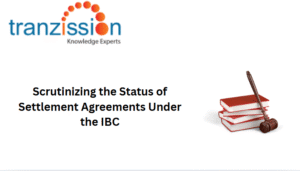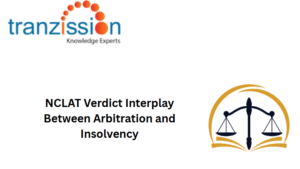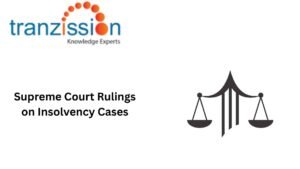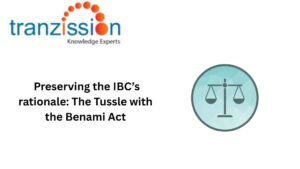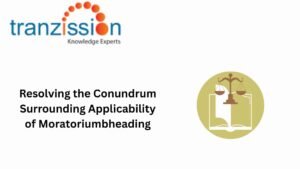
Section 61 of IBC – Insolvency and Bankruptcy Code, 2016
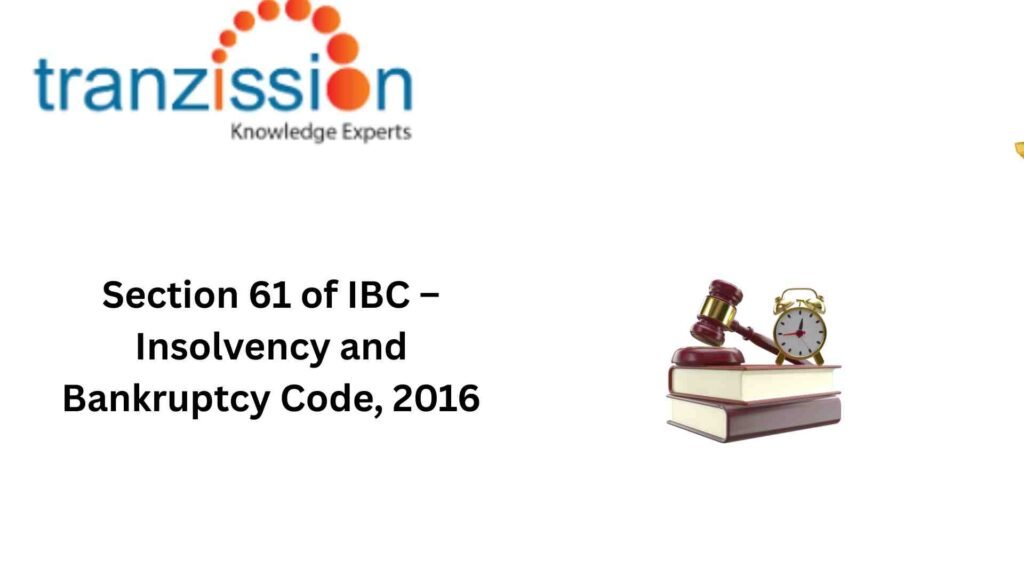
Table of Contents
Section 61 of IBC states that any person aggrieved by an order of the National Company Law Tribunal (NCLT) may prefer an appeal to the National Company Law Appellate Tribunal (NCLAT). The appeal must be filed within 30 days from the date of the NCLT order, and the NCLAT may extend the filing period by 15 additional days, if sufficient cause is shown. Therefore, it provides a legal remedy against adverse decisions by the NCLT, ensures fair resolution of insolvency disputes, and empowers affected parties to seek a review of NCLT orders.
Key Highlights of Section 61 and Their Implications
What are the grounds for appeal under Section 61:
The grounds of appeal are:
- The approved resolution plan is in contravention of the provisions of any law for the time being in force
- There has been a material irregularity or fraud in the exercise of the powers by the resolution professional during the corporate insolvency resolution period
- The debts owed to operational creditors of the corporate debtor have not been provided for in the resolution plan in the manner specified by the Insolvency and Bankruptcy Board of India (IBBI)
- The insolvency resolution process costs have not been provided for repayment in priority to all other debts
- The resolution plan does not comply with any other criteria specified by the IBBI
Who Can File an Appeal?
Any person aggrieved by the order of the NCLT under Part II of the IBC.
Appeal Filing Process
To file an appeal under section 61, the aggrieved party must first file it with the NCLAT within 30 days of the NCLT order, with a possible 15-day extension for sufficient cause.
Role of NCLAT as the Appellate Authority
What is the NCLAT?
The NCLAT is the appellate body that oversees the NCLT decisions and has jurisdiction over corporate insolvency resolution, liquidation, and voluntary winding up cases.
What are the powers of NCLAT?
The NCLT has the power to:
- Review and modify NCLT orders if found to be unjust or unlawful
- Demand that cases be sent back to NCLT for reconsideration
- Dismiss appeals lacking merit
- Provide interim relief to aggrieved parties.
Read more :Role of ESG in Corporate Governance
When Can NCLAT Reject an Appeal?
The NCLAT can reject an appeal underSection 61 of IBC if the appeal is not filed within the extended 45-day period, if the appeal lacks substantial legal grounds, or if the appellant fails to provide necessary documentation.
Challenges and Issues in Filing Appeals Under Section 61
The challenges and procedural issues in filing an appeal under Section 61 of IBC are:
- The 30-day limitation period is rigid, with only a 15-day extension at NCLAT’s discretion. The delays in obtaining NCLT orders can affect appeal timelines.
- Appealing to NCLAT involves significant legal expenses and corporate debtors and smaller creditors may face financial constraints in pursuing appeals.
- Success in appeals depends on presenting strong legal arguments, and incorrect documentation or weak evidence can result in dismissal.
Best Practices for Insolvency Professionals in Handling Appeals
Insolvency professionals can effectively handle appeals by:
- Monitoring NCLT orders closely to ensure appeals are filed within 30 days and maintain ready-to-file documentation for urgent cases.
- Establishing errors in NCLT orders, providing strong legal precedents and case laws supporting the appeal.
- Assessing whether the appeal has a reasonable chance of success and avoiding frivolous appeals that may be dismissed outright.
Future Implications and Potential Amendments in Section 61
There may be regulatory changes to the IBC or the relevant rules or regulations to the extension of the 30-day appeal period to accommodate procedural delays. The IBBI may also introduce an online appeal filing system for faster resolution. Incorporating technology in the appeal filing process can significantly streamline the process and avoid any procedural irregularities. For instance, artificial intelligence driven legal research tools to assist in drafting appeals and blockchain-based case management for tracking appeal status.
Conclusion
Section 61 of IBC is crucial because it outlines the right to appeal against the order of the NCLT to the NCLAT, with a strict timeframe of 30 days and a limited extension of 15 days for sufficient cause. However, aggrieved parties must act swiftly and present strong legal grounds to succeed in appeals. Further, Insolvency professionals play a crucial role in guiding clients through the appeals process

